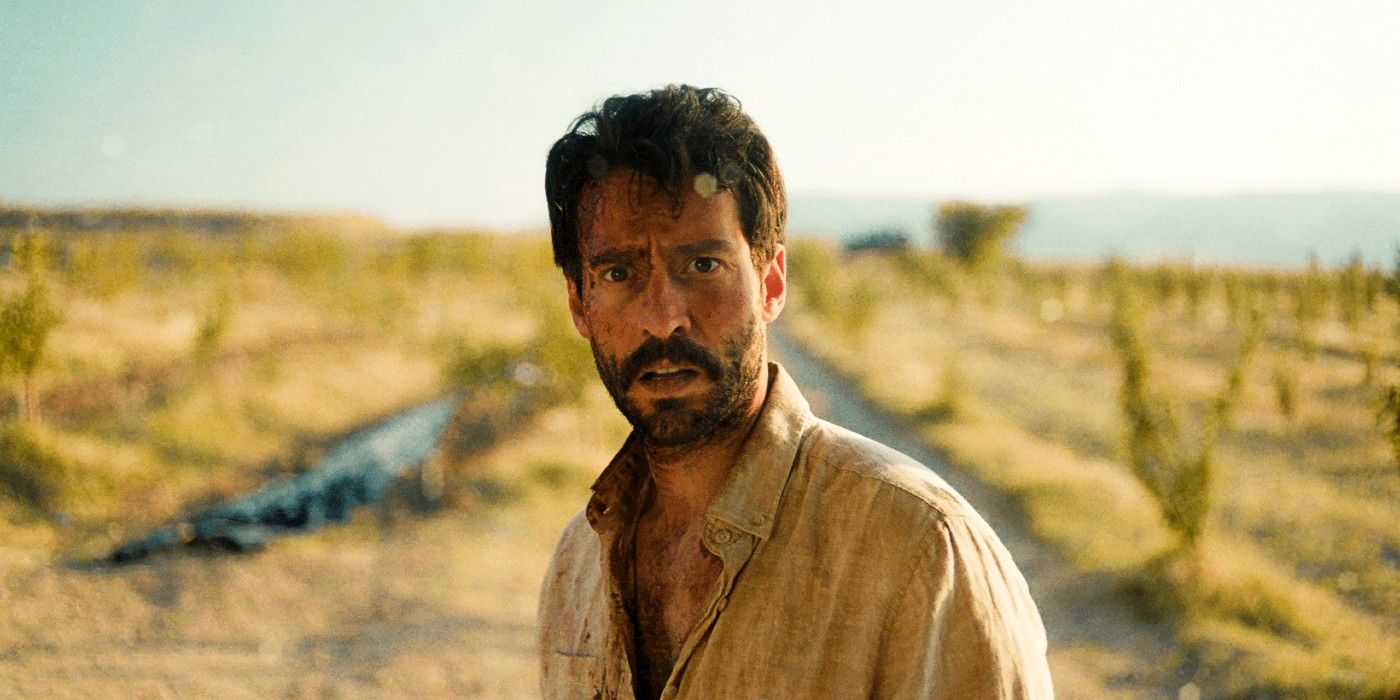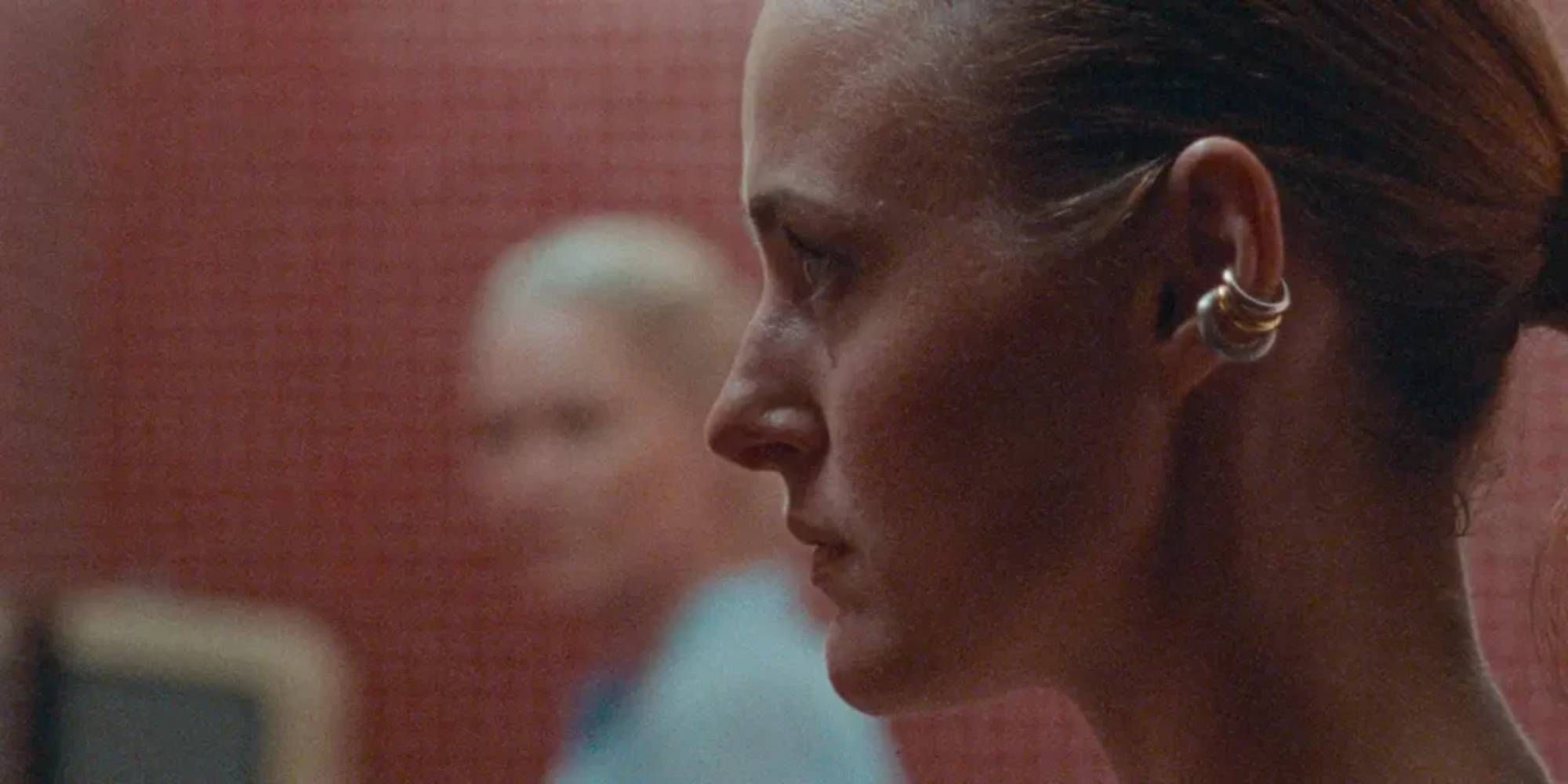Armand, the new Norwegian movie written and directed by Halfdan Ullmann Tøndel, is a very interesting type of thriller. It has all the typical hallmarks of the genre: shocking twists, suspenseful silences, and unsettling interactions. And yet, its tension comes from adults sitting in classrooms and walking through the hallways of a primary school, while its plot revolves around the unseen actions of a child.
Tøndel has given himself a difficult task, and the final product is almost a complete success. I found myself mystified and baffled by Armand, eagerly trying to piece everything together even when Tøndel began to lose the plot. Luckily, that only happens closer to the end, so the entire viewing experience remains delightfully compelling. Renate Reinsve, the breakout star of The Worst Person in the World, gives a stunning performance that’s impossible to look away from, and it’s a key part of why this movie works.
Armand Tells A Difficult Story
And It Doesn’t Go The Way You Might Expect
Reinsve plays Elisabeth, a famous/borderline infamous actress who has been called to her son’s school for a parent-teacher conference. She’s unaware of the true reason behind the meeting, but before she’s even arrived, the teachers are already bracing for a difficult conversation. Unwilling to definitively state whether something has happened, but also careful not to diminish a potentially devastating event, three teachers cautiously map out their strategy in a scene that’s impressive in how it threads the line between awkward political correctness and bland deflection.
Sunna (Thea Lambrechts Vaulen), the youngest and perhaps most naive teacher, is clearly out of her depth, unwilling to ruffle any feathers and looking for proper procedure, yet her superiors, Jarle (Øystein Røger) and Ajša (Vera Veljovic), decide they should stay out of the initial conversation. That proves to be the first critical error they make, as this will not be a simple chat.
Related
The Things You Kill Review: A Slow Burn Psycho-Drama About Revenge That Sneaks Up On You With Existential Questions
The Things You Kill uses a story about revenge as a vehicle for something much more existential and surreal, sneaking up on you in thrilling ways.
Armand‘s logline keeps the exact nature of the allegations a secret, and I’ll do my best to preserve all the surprises found within the movie, but to put it simply: Elisabeth’s son has been accused of a horrifying act that resulted in another student, his friend Jon, getting hurt. When Jon’s parents, Sarah (Ellen Dorrit Petersen) and Anders (Endre Hellestveit), arrive, their impending appearance is heralded by echoing footsteps getting steadily louder as Elisabeth and Sunna sit in tense silence. It’s one of the many clever ways Tøndel uses sound; music is employed sparingly, with the director instead putting a greater emphasis on silence and diegetic sounds.
When Elisabeth hears the story of what Armand allegedly did to Jon, she’s quick to deflect and come to her son’s defense, and it gives the impression of an out-of-touch mother who refuses to admit her child is capable of doing something wrong. In fact, our initial perception of Elisabeth, shaped by how the teachers speak of her and how Sarah looks at her, is that she is shallow, self-obsessed, and privileged. However, Tøndel is not interested in following what we might expect from a story like this.
Armand Is Brimming With Tension & Compelling Performances
It’s A Thrill To Watch, Even When Some Odd Choices Are Made
Elisabeth and Sarah’s families have far more history between them than initially assumed, and Tøndel unspools details of their connection in a way that never feels clunky. Instead, each realization lands with a genuine emotional weight, matching the way cinematographer Pål Ulvik Rokseth captures the characters moving around the cavernous school. Every shot thrums with intention, lingering when it needs to and moving about like an unseen observer. Each creative element comes together and increases the tension, making Armand a gripping watch even when characters are simply standing in a bathroom or hallway.
The whole Armand cast is stellar, perfectly conveying the characters’ shifting allegiances and uncertain moral stances.
As the enigmatic Elisabeth, Reinsve pulls off an incredible feat of acting. Her innermost feelings and motivations remain ciphers to us, yet she’s never so distant that we lose interest or even empathy. In one disturbing moment, when Ajša starts explaining the next steps, Elisabeth dissolves into hysterical laughter that lasts for close to five minutes, growing in intensity until it turns into wracking sobs. We can hardly comprehend what she finds so funny, and may even be horrified at her apparent callousness, but Reinsve gives herself so fully to the moment that we’re entranced anyway.
Petersen deserves special credit as well. With Sarah searching for some kind of justice, Petersen gives an achingly restrained performance that pulls us to her side. Even when her expression remains calm, her eyes burn with anger and sorrow. She proves to have many layers to her character, making her just as compelling as Elisabeth. The whole Armand cast is stellar, perfectly conveying the characters’ shifting allegiances and uncertain moral stances.
As Armand nears its end and new revelations come to light, Tøndel leans more into the surreal, for better or worse. Two extended sequences of choreographed movements — the first is dancing, but I wouldn’t use that to describe the second — are alternatively dreamy and nightmarish, and their significance is tricky to parse out. It feels a bit like Tøndel got too carried away with Armand‘s cryptic nature. This does lessen the impact of the overall ending, but only slightly. The journey that comes before it is still one worth going on, if only to see Reinsve cement herself as a star to watch.
Armand is rated R for some language and sexual material. The film is now playing in limited US theaters and will expand nationwide on February 14.

Armand
- Release Date
-
September 27, 2024
- Renate Reinsve gives a stunning performance, as does Ellen Dorrit Petersen.
- The tense atmosphere is perfectly executed.
- The story deals with a difficult subject in a compelling way.
- Halfdan Ullmann Tøndel gets a bit too enamored with the cryptic.



